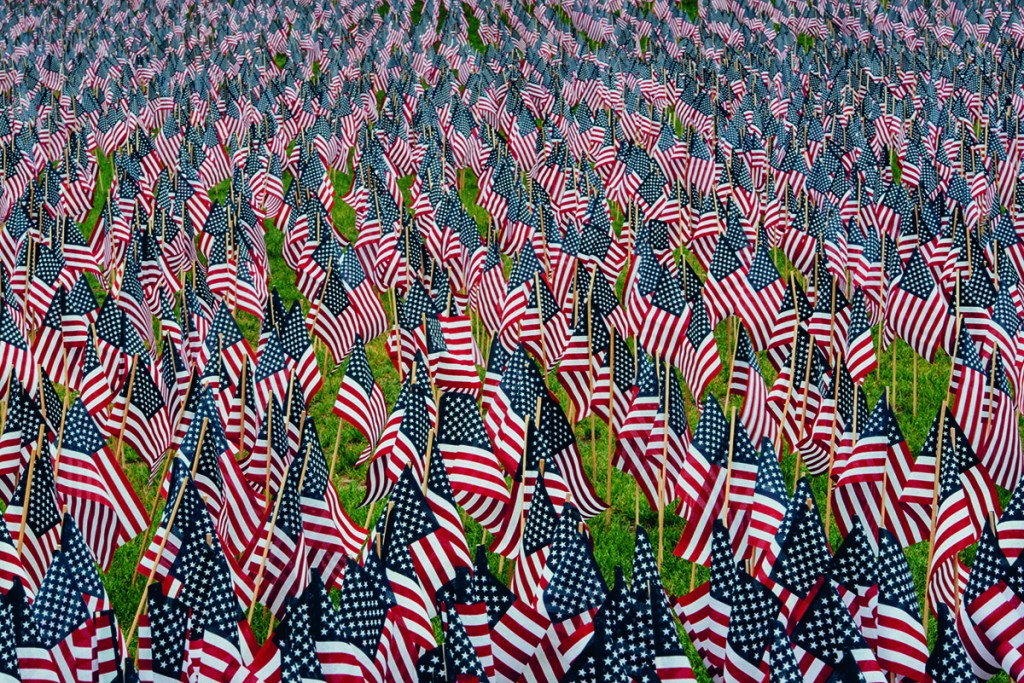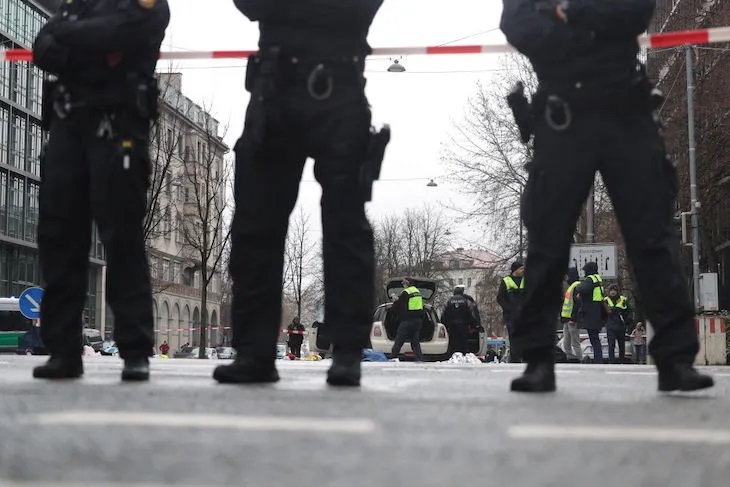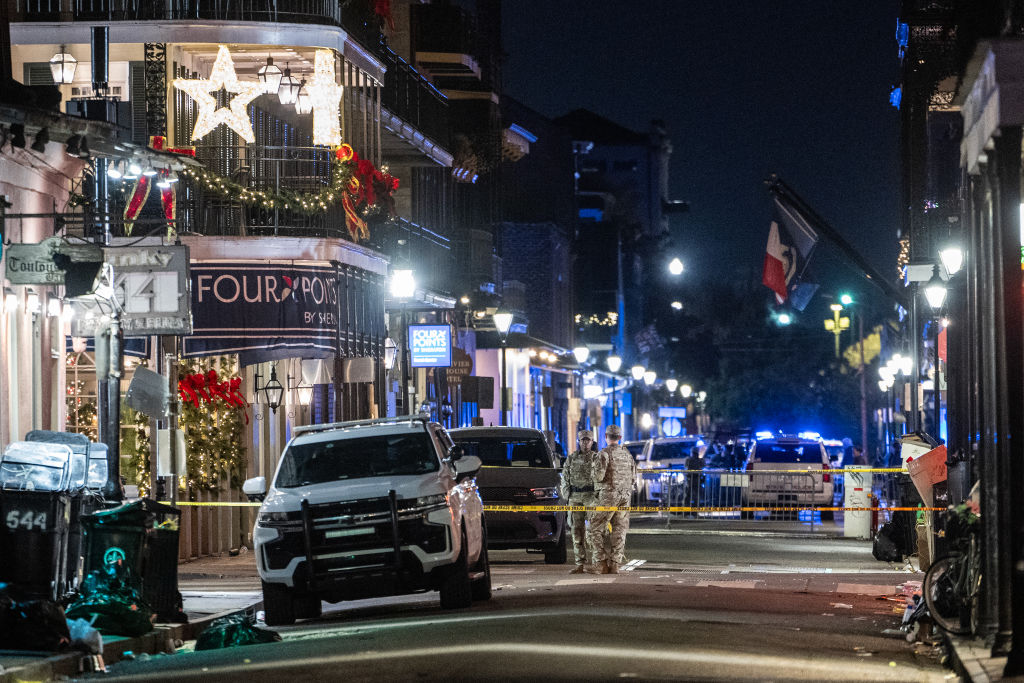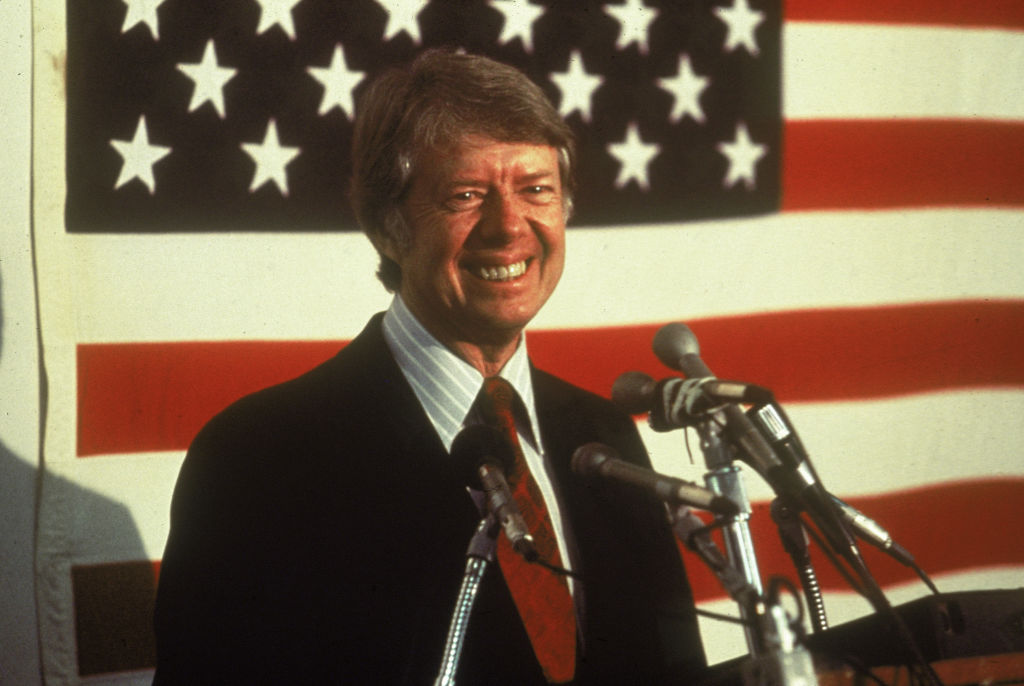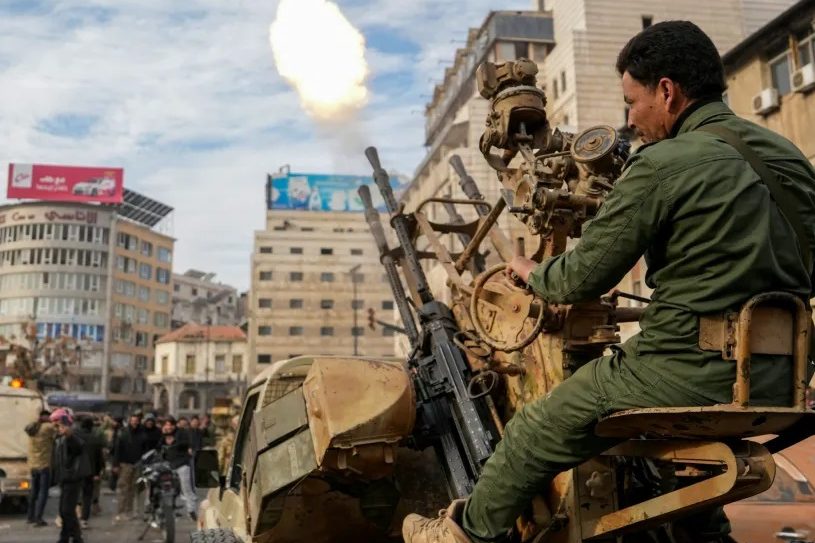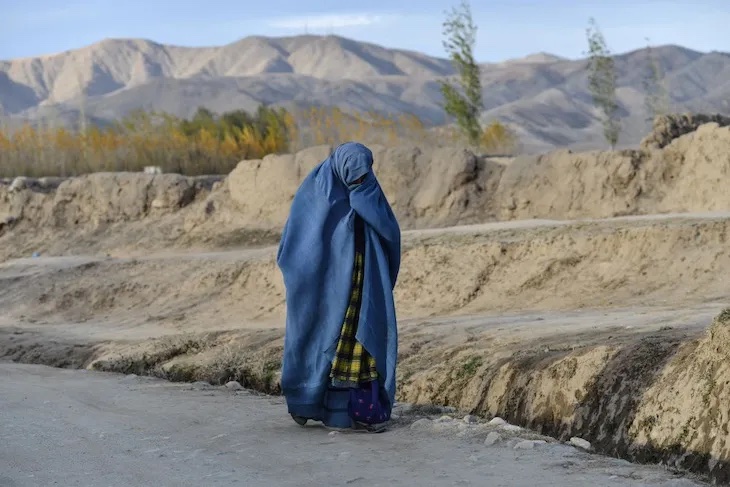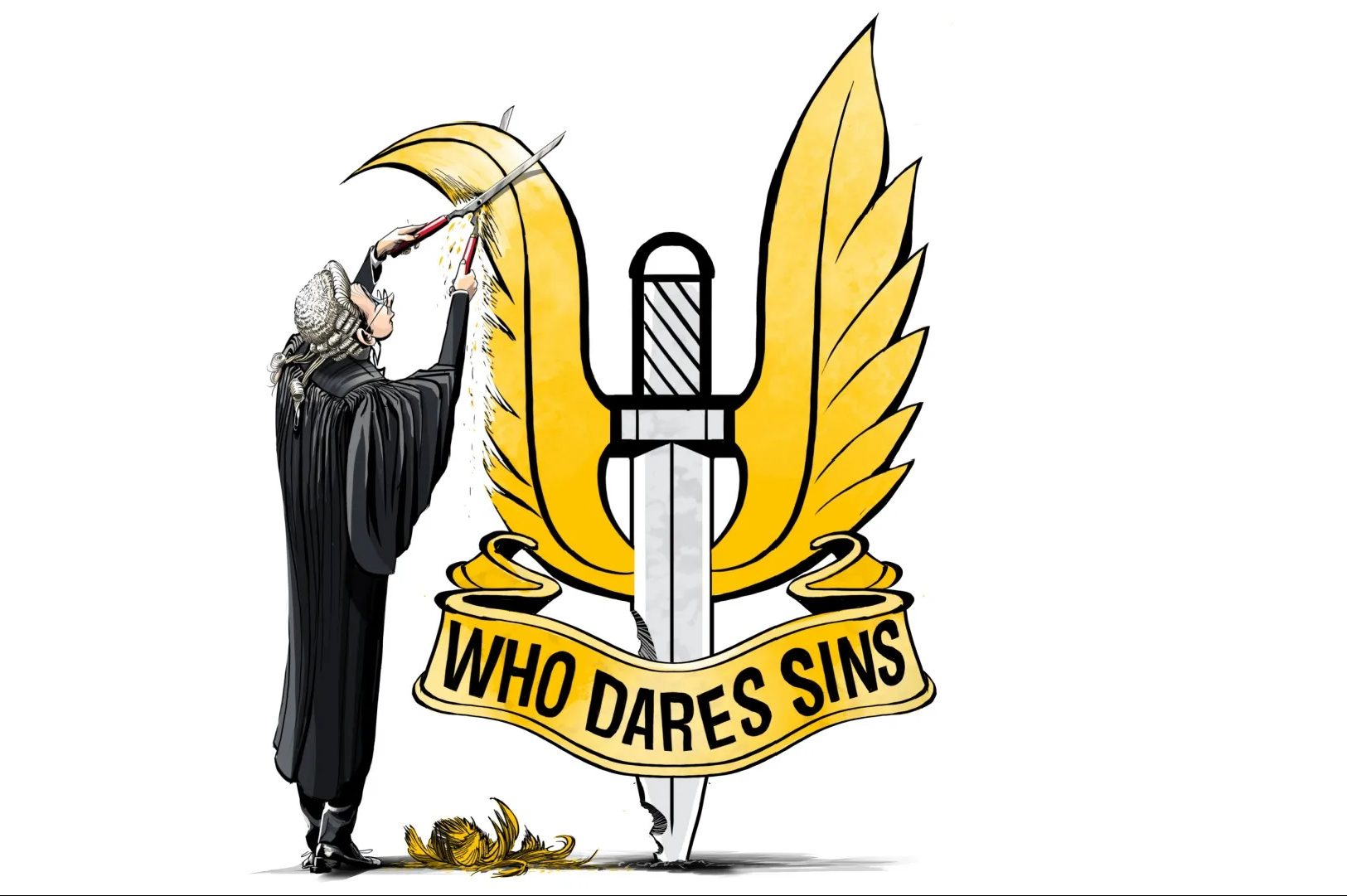Twenty years after 9/11, the War on Terror has come full circle. Everyone expected the Taliban to surge back to power as soon as American forces left Afghanistan. Instead, the surge began while America’s embassy in Kabul was still open, inviting unwelcome flashbacks to Saigon in 1975 and Tehran in 1979. There are piquant memories of 1989, too — not of the Berlin Wall’s fall or a young Francis Fukuyama’s publishing ‘The End of History?’ in the National Interest, but memories of an Afghan insurgency’s triumph over a superpower.
That triumph would inspire and ultimately contribute in the most concrete ways to a decade of terrorism, culminating in the 9/11 attacks. The very year that Western intellectuals celebrated the end of the Cold War, and with it the removal of the last great obstacle to worldwide liberal democracy, militant Islamists learned the lesson that not even the greatest of worldly powers was invincible before God’s holy warriors. If jihad against the Soviet Union could succeed, followed swiftly, as if by divine judgment, by the USSR’s dissolution, then who was to say a war against the United States could not be won?
And now it has been, in a very narrow sense. Removing the Taliban from power was the first objective of American retaliation for the 9/11 attacks. Capturing or killing the leadership of al-Qaeda, including Osama bin Laden, may have been a higher priority in the abstract, but regime change in Kabul was the immediate aim. It was easily obtained — and is just as easily lost. Will extremists elsewhere take heart from this, as they did from the Soviet Union’s humiliation? Will the US soon find itself facing another campaign of terror?
Almost certainly not. For all that the feeling of déjà vu is overwhelming at the end of the Afghan mission, the world is a very different place — even if Afghanistan is not. The Arab and Islamic worlds, in particular, are not what they were in 1989 or 2001. Or in 1979: the roots of 9/11 extend back at least that far, and the example of the Iranian Islamic revolution that year is if anything even more important than the precedent set by the mujahideen victory over the Soviets a decade later.
The Iranian revolution put the fear of God into the rulers of the Arab world — the fear, that is, of the scholars who spoke in God’s name. Clerics had overthrown the Shah despite the fearsome repressive instruments at his command, such as the notorious Savak secret police. What had happened in Shi’ite Iran could happen in the Sunni world, too. It could happen in Saudi Arabia. The House of Saud was hardly less decadent, or domineering, than Reza Pahlavi.
The Gulf Arabs chose to ransom themselves: they would pay off the clerics to keep them content. And they would point the clerics toward another enemy. The Iranian revolution was inflamed by hatred of America and Israel, not just the Shah. So why not inflame Sunni hatred of those infidels, too, and keep the preachers of hate preoccupied with foreign enemies?
Money flowed to radical mosques and madrassas — in the developing world, including Pakistan and Afghanistan, but in the West too, as well as in the Arabic-speaking countries. The fruits of this could be seen in the multinational complexion of the 9/11 attackers and their sponsors. Al-Qaeda at its inception in 1988 was intentionally not tied to any single region. It would draw recruits from everywhere and was prepared to attack anywhere: in Kenya or Tanzania, where it bombed US embassies in 1998; or in the Persian Gulf, where a suicide operation against the USS Cole two years later killed 17 American sailors. America itself was not safe when al-Qaeda associates tried to destroy the World Trade Center in 1993 or when al-Qaeda hijackers succeeded in doing so, crashing planes into the Pentagon and a field in Pennsylvania, on September 11, 2001.
On September 20, 2001, George W. Bush addressed a joint session of Congress to explain why the 9/11 attacks had happened. His answer was incoherent, but its logical contradictions were not those of a famously lexically befuddled and incurious president. Rather, Bush spoke nonsense because nonsense was Washington’s consensus view. He said, at one and the same time, that the terrorists ‘hate what they see right here in this chamber: a democratically elected government. Their leaders are self-appointed. They hate our freedoms: our freedom of religion, our freedom of speech, our freedom to vote and assemble and disagree with each other,’ and also that ‘they want to overthrow existing governments in many Muslim countries such as Egypt [and] Saudi Arabia.’
Who, one wonders, did President Bush imagine had put Egypt’s then-leader Hosni Mubarak or the Saudi royal family in power, if these absolute authorities were not ‘self-appointed’ like the terrorists’ leaders? If ‘freedom of religion’ and ‘freedom to vote and assemble and disagree with one another’ were the issues that divided us from the terrorist ‘them’, why would states like Saudi Arabia and Mubarak’s Egypt, with none of those freedoms, count as being on our side rather than the other side?
Yet Bush and the Washington foreign-policy community were sincere in their belief that the absence of liberalism and democracy was the root cause of terrorism, and its cure was therefore the promotion of liberal democracy through regime-change and nation-building — though Bush had sworn not to pursue nation-building when he had been a presidential candidate a year earlier. If such American allies (if that’s the right word for them) as Saudi Arabia and Egypt, the homeland of several of the hijackers and attack planners, were examples of undemocratic illiberalism every bit as much as Saddam Hussein’s Iraq or the mullahs’ Iran, they could be excused by the logic of revolution: just as certain rich capitalists who financed communist thinkers and terrorists were not really bourgeois enemies of the people, thanks to their service to the cause. Likewise, despotic states were not really despotic if they were on the right side of history.
And even if they were despotic, they would be cured along with all the other sick nations of the world through the medicine of liberal democratic worldwide revolution. The revolution just needed a jump start, a push to remind Arabs and Muslims that history had ended and freedom was at hand. The war in Afghanistan was about much more than just punishing the Taliban or killing bin Laden. The war would prove that liberal democracy was for everyone, including the people most ill-prepared to receive it.
Iraq had not had anything much to do with 9/11, but America’s foreign-policy elites had already been discussing regime change and liberalization there years before the day of infamy came. Iraq and Afghanistan would now serve as models to the world, particularly the Arab and Islamic world. They might also create a liberal, democratic revolutionary pincer, with evildoer Iran caught in the middle and apt to be transformed in a chain reaction — or domino effect — of democratization.
Critics of these wars were wrong about the motives behind them. They were not ‘wars for Israel’ or ‘wars for oil’. The critics were mostly wrong, too, about the motives for the terrorist attacks: they were not simply provoked by the fact that ‘we were over there’. America has meddled in the politics of almost every nation and every civilization on Earth without reaping a whirlwind of terror in return. And Iraqis, contrary to ‘blowback’ theories, did not turn to terrorism against the US in anger at the chaos and slaughter that followed the American invasion. Religion’s turn toward hate and despotism in much of the Islamic world did account for the attacks — but it was our fear of Islamic revolution, not our response, liberal democracy, that set the forces in motion.
Events over the past two decades have shown that such fear was justified. America’s wars brought not a series of liberal revolutions, but the rise of the Islamic State. Iraq became a magnet for Islamists, not liberal democrats, after the American invasion. The alternative to Bashir al-Assad in Syria is not liberal democracy, but Islamist rule. And in Afghanistan, after a 20-year experiment with democracy, Taliban-style Islamism is returning.
Why did liberalism fail? In short, because liberalism cannot bind people together in conditions of profound insecurity, as religion and tribalism do. Nor does liberalism provide such compelling reasons to kill or die. A man will die for heaven or kill for his brother. He might die for his vote, too, but only if he thinks there’s someone worth voting for. But a Pashtun Jeb Bush? A Muslim Joe Biden? The parties and political leaders in the newly democratized American protectorates are usually sectarian or tribal — what else would they be? — when they aren’t simply kleptocratic. The Taliban are no doubt every bit as corrupt. But they have zeal as well as corruption.
Islamism has every reason to triumph in Afghanistan. But its triumph may be its undoing. The original Islamic revolution, Iran’s, has long since reached its Brezhnev era, if not its Andropov or Chernenko twilight. Clerics can mobilize masses and bind populations — but once the regime is institutionalized and secure, what happens? People sometimes begin, as in Iran or the bygone Eastern bloc, to unbind themselves as they chafe at the restrictions imposed by superannuated clerics and commissars. Even in Afghanistan? Maybe.
Yet that day will be a long time coming. Iran itself has some distance to go. As for Saudi Arabia and the Gulf, a leader as young as Crown Prince Mohammad bin Salman, just 35, never experienced the shock of the Shah’s fall. Having dealt brutally with rivals and political dissenters, he seems little afraid of the clerics. The Taliban’s gun-toting religious scholars may be celebrating victory, but it’s a victory against foreign liberalism, not Middle Eastern monarchy. The ghost of 1979 has been exorcised. If the spirit of 1989 is reborn in Afghanistan, it is not enough, on its own, to spread terror across the world again.
This article was originally published in The Spectator’s September 2021 World edition.



